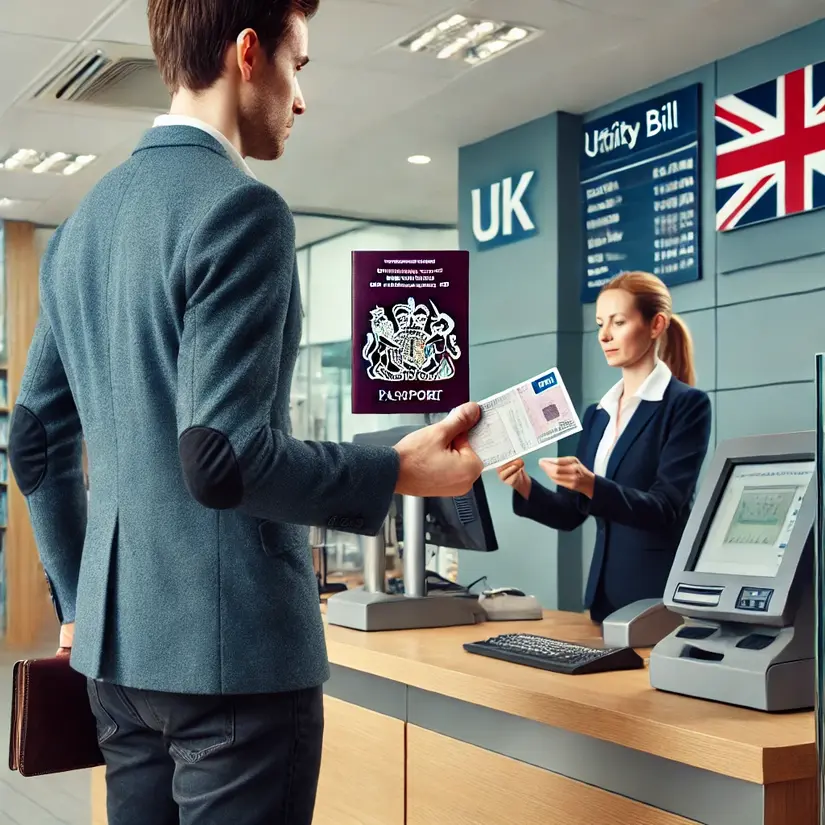In this post, we’ll unpack what banking in the UK is like for expats, how to open an account, what the latest trends are, how the forecasts are looking for the system and sector, as well as the best banks for foreigners.
Expats residing in the UK have easy access to various products and services like current and savings accounts, credit and debit cards, mortgages, loans, and investment management.
If you are looking to invest as an expat or high-net-worth individual, which is what I specialize in, you can email me (advice@adamfayed.com) or WhatsApp (+44-7393-450-837).
You may need help for your banking and wider financial needs due to the complexities of the UK financial services sector, the necessity for personal financial planning, and compliance requirements.
Banking in the UK for Expats
Banking for expats in the UK offer tailored accounts and services like multi-currency accounts and international money transfer alternatives.
The costs of banks in the UK are still reasonable vs other major financial centers, even though expats may have to pay extra for things like international money transfers or keeping a non-resident account than UK residents do.
How to open UK bank account for expats
Below are some things and steps to consider when opening an account with UK banks, especially for foreign nationals:
1. Collect the Necessary Paperwork
You’ll need your passport, evidence of your UK address like a utility bill, your job contract or proof of income, and your National Insurance number, if you have one.
2. Select Your Bank Account
Seek solutions created especially with expats in mind. Dedicated relationship managers is a common feature of these accounts. To choose which option best suits your needs, compare the fees, balance minimum, and other features.
3. Open the Account
The application process can typically be started over the phone or online prior to travel to the UK. Provide the necessary paperwork and details about your job and financial status as soon as possible. The process could take several weeks.
4. Activate the Account
You can use your newly opened account for regular banking, foreign transfers, and other financial needs. To assist you in remotely managing your account, several banks provide online banking and smartphone apps.
Online Banking in the UK
More clients are using the powerful mobile apps and online banking platforms that the majority of UK banks offer. To compete with fintech rivals, traditional banks are making significant investments in their digital products too.
Due to the rise in cyberattack risks brought about by digital banking, banks in the UK are now investing in solutions such as enhanced threat detection and biometric verification.
Although online banking is still the most popular option in the UK, the percentage of bank account holders completing their financial transactions via PC or laptop decreased from 58% in 2019 to 41% in early 2024, according to Statista’s Consumer Insights.
To maintain the reliability of the banking system in the UK, the government and financial authorities revise regulations regularly.
Important areas of concern include:
- protecting consumers
- enacting emerging tech like artificial intelligence
- establishing anti-money laundering measures
UK Banking Trends 2024 for High-Net-Worth Individuals

The use of mobile apps and online banking services by high net worth individuals or HNWIs is growing.
Traditional banks are investing extensively in digital upgrades so as to compete with fintech companies and live up to the high standards of tech-savvy HNWIs.
Individualized financial services are a must for HNWIs. To cater to their specific requirements, banks are offering specialized investing plans, committed relationship managers, and exclusive events.
When choosing a bank, these clients place a high value on environmental factors. Banks highlight their commitment to ESG and provide sustainable investment solutions in an effort to draw them in.
HNWIs are driving up demand for real estate, hedge funds, and private equity because they want to diversify their investments and increase their returns. Banks are giving customers access to investing alternatives and broadening their product offerings.
Third-party providers can now access client data with permission thanks to open banking legislation. It is projected that this trend will encourage more innovation in the UK banking industry.
What are top banks in the UK 2024?
Some of the best banks for expats opening accounts in the country include:
- HSBC Expat: Designed with expats in mind, the Premier Account comes with a debit card, a foreign currency app, GBP, USD, and EUR support, plus round-the-clock service. It demands an annual income of 100,000 pounds or a minimum balance of 50,000 pounds.
- Lloyds International: Their Current Account is designed for foreign nationals with moderate incomes. It is offered in in pounds, euros, and USD. A minimum yearly salary of 50,000 pounds or an initial deposit of 25,000 pounds is required.
- NatWest International: The Premier Banking account is intended for expats who are well-off and make above 75,000 pounds a year or 100,000 pounds in deposits. It provides 24/7 customer assistance, global banking services, multi-currency accounts, and a dedicated relationship manager.
If non-traditional banks are included, we have Starling Bank and Wise. These are digital platforms that cater to expats, offering swift account set up, no minimum balance, multi-currency accounts, competitive rates, and global transfers.
UK Banking Outlook 2024
In the face of economic uncertainty, Cognizant’s 2024 outlook for banking in the UK outlines the major factors influencing the sector.
The report said banks are prioritizing the improvement of risk management, the adoption of technology such as generative AI, and the optimization of profitability through efficient operations. By promoting continual skill development and changing work environments, they also want to draw in younger talent.
In spite of difficulties, UK banks continue to serve individuals and companies.
Fitch Ratings projects that despite mild concerns about asset quality, large banks would continue to perform well due to their strong franchises and increasing interest rates.
In the future, smaller banks in the UK may merge or be bought by larger institutions. This is expected to lead to more consolidation in the banking system. Fintech companies and conventional banks are increasingly forming tie-ups in an effort to expand their service offerings and attract fresh customers.
Environmental, social, and governance considerations are becoming more and more important, and they are directing banks to match their lending policies and business operations with sustainable objectives. Younger clients are selecting financial providers based on which banks have strong ESG credentials as well.
Pained by financial indecision? Want to invest with Adam?

Adam is an internationally recognised author on financial matters, with over 760.2 million answer views on Quora.com, a widely sold book on Amazon, and a contributor on Forbes.





















Discussion about this post